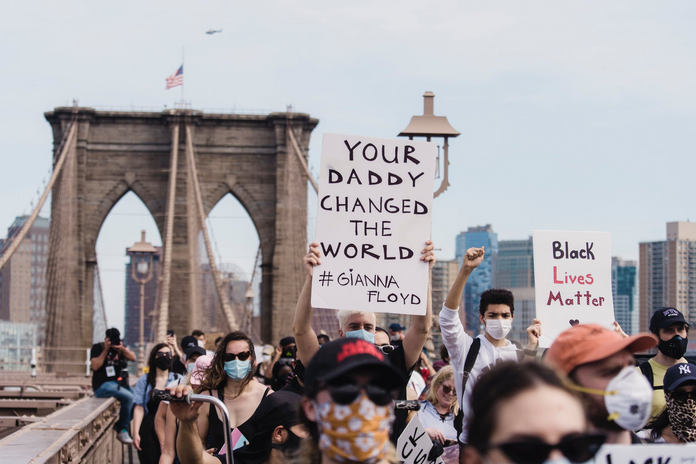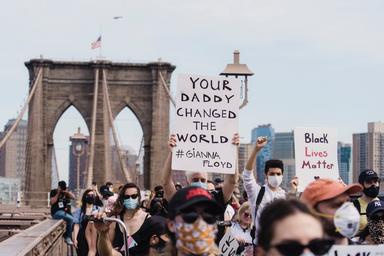George Floyd’s death on May 25, 2020, sparked protests around the country that focused on police brutality and the systemic oppression of black Americans. These protests have continued for months and have started an important conversation about race. Protesting can seem pretty straightforward, but given the violence that has ensued at many protests, including the recent murders of two protesters in Kenosha, Wisconsin, it is important to learn how to protest safely. Here are some tips to remember when you are going protesting either alone or with a group.
- Remember Covid-19 is Still at Large
-
Since March, the world around us has been adapting to the global coronavirus pandemic, which has brought about new rules and regulations designed to keep us safe in this time of uncertainty. Protesting is still incredibly important, but remember to consider your health. If possible, try and remain 6 feet apart from your fellow protestors and remember to wear your mask at all times. Follow any safety guidelines set out by the protest organizers, and remember, if you don’t feel safe, it’s okay to leave. Your health is important, and you don’t want to put yourself at risk if you don’t have to. As always, if you have been exposed to Covid-19 in the last 14 days or are experiencing any symptoms, please stay home and quarantine. See a complete list of symptoms here.
- Go With a Group, if you can
-
Safety in numbers is very real, and while everyone hopes that protests will be peaceful, in some cases such as Kenosha, Wisconsin, peaceful protests have been subject to violent incidents. If you can, go with a group of trusted people so that you can watch each other’s backs in case anything unfortunate happens. Hopefully, all will go well, and you can all protest peacefully together. If you are unable to protest with a group, then make sure to tell someone of your plans to ensure your safety. We’ll talk more about that next.
- Tell Someone About Your Whereabouts
-
When you decide to go to a protest, tell someone who isn’t going with you where you will be and what times you plan to go and leave. Make sure you have them contact you at your intended departure time to make sure that you are safe or to see if you need help. Unfortunately, protesting sometimes results in arrests and violence. Make sure that you have someone outside of your protest group who knows where you are and can get you help if you need it.
- Know Your Rights
-
Before any protest, it is important to know your rights as a citizen. Remember, the right to peaceful protest is protected under the First Amendment. Private property owners are allowed to set their own rules for their property, so it is safest to protest in public spaces. If the police order the protest to be dispersed for any reason, they must allow a reasonable opportunity for you to comply. This includes giving you enough time to leave and giving you the ability to leave unobstructed. You have a right to clear and detailed notice of dispersal, and if law enforcement fails to do this, then they don’t have the right to arrest you. If you are detained for any reason, law enforcement must tell you why. Read more about your rights as a protestor or protest organizer here.
- Don’t Endanger Others
-
While protesting can seem harmless and a simple act of using your First Amendment right, not everyone views it that way. Pictures or videos taken at protests can circulate online and those in the pictures can be subject to unfair treatment. Make sure that if you take a picture at a protest, you have the consent of everyone in the photo so that people aren’t endangered unknowingly. Technically, you can photograph anything and anyone at a protest, but if you do that, know that you may be putting some people at risk of retaliation against them for their political beliefs.
Protesting can seem scary right now, especially knowing that some peaceful protests have turned violent. Following these steps can help you make sure that you and those at the protest can stay as safe as possible while still getting your point across.



